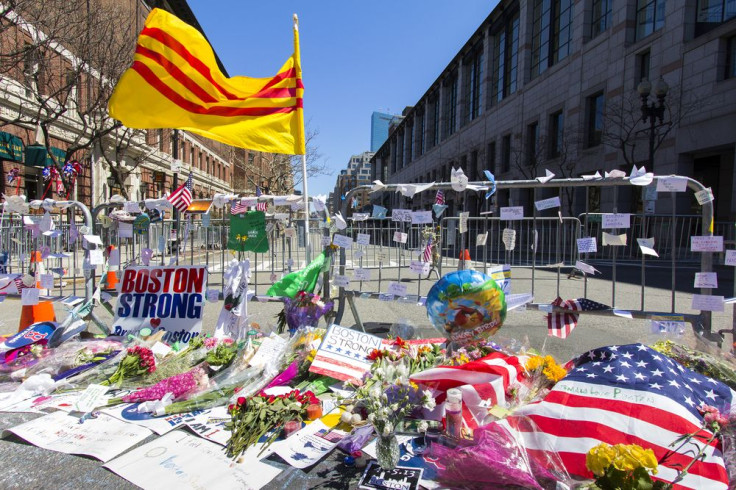Boston Marathon Bombing And Children: Media Exposure Has Led To Symptoms Of PTSD In Kids Similar To Post-9/11 Attacks

Outside of people who are directly affected by major disasters such as the Boston Marathon Bombings and the 9/11 terrorist attacks, people who are exposed to these events via prolonged media exposure can also fall victim to psychological effects. A recent study published in the journal Pediatrics has revealed that 11 percent of children who lived in the area of the Boston Marathon Bombings site or where the ensuing manhunt took place showed signs of post-traumatic stress disorder (PTSD).
"Children near and far throughout the Boston area showed a range of mental health problems, not just PTSD symptoms," Jonathan Comer, associate professor of psychology and psychiatry at Florida International University, told HealthDay. "Exposure to the bombing itself and the manhunt events [on the media] were associated with considerable PTSD symptoms."
Researchers at Florida International University and Boston University interviewed 460 parents with children between the ages of 4 and 19 who lived within 25 miles of the Boston Marathon site or Watertown, Mass., where the ensuing manhunt took place. Parents were asked to comment on their child’s experiences during the week of the bombings and manhunt, including if they were at the marathon, if they witnessed injuries or dead bodies, and if they knew any of the victims. They were also asked about their child’s psychological health in the six months following the incident.
Around 11 percent of the children who lived within 25 miles of the Boston Marathon Bombings site and the area where the manhunt for Dzhokhar and Tamerlan Tsarnaev took place displayed symptoms of PTSD. Although children who were at the marathon site were more likely to show signs of PTSD, kids exposed to prolonged media exposure were also affected by other emotional disturbances and conduct issues, including hyperactivity and conflict with peers.
“There was an enormous mental health toll associated with direct exposure,” Comer told NBC News. “And there also was a toll with kids exposed to the manhunt, which was an unfolding and uncontained situation that lasted much longer than the bombing itself.”
Comer and his colleagues said that not all of the blame for children’s exposure to bombing and manhunt activities lied with the media, but also parents who neglected to limit their child’s exposure to the media. Most of the children included in this study were exposed to an average of 1.5 hours of bombings coverage on the day of the attack while one in five kids watched over three hours of media coverage. Only a third of parents reported that they had tried to limit their child’s access to Boston Marathon Bombings coverage.
Source: Dantowitz A, Chou T, Comer J, et al. Adjustment Among Area Youth After the Boston Marathon Bombing and Subsequent Manhunt. Pediatrics. 2014.
Published by Medicaldaily.com



























